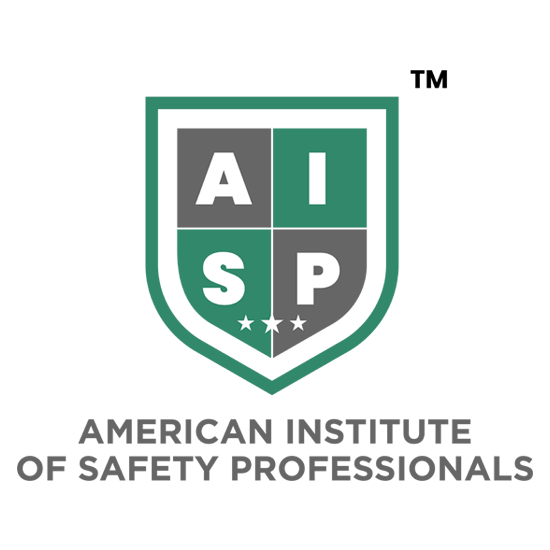265 Hackensack St
Wood Ridge, New Jersey 07075 USA
SAFETY IS NOT A CHOICE, IT'S A RESPONSIBILITY WE OWE TO OURSELVES AND THOSE AROUND US
Oil and Gas Well Inspection
- January 01, 2026 - December 31, 2026
- Flexible Timings
- Open Enrollments
- Online Zoom Sessions or LMS
- +1 689 286 3561
- info@amiosp.com
Course Overview
Learning Outcomes
- Understand regulatory requirements, industry standards, and best practices for oil and gas well inspection and maintenance.
- Identify potential hazards and operational risks associated with oil and gas wells, including mechanical failures, pressure issues, and environmental concerns.
- Develop and implement comprehensive well inspection protocols, including checklists, risk assessments, and reporting procedures tailored to site-specific needs.
- Apply preventive maintenance strategies, hazard control measures, and engineering solutions to ensure well integrity and operational safety.
- Train inspection personnel, supervisors, and field teams on safe inspection techniques, emergency response, and compliance obligations.
- Conduct on-site inspections, audits, and evaluations to verify the effectiveness of safety and maintenance measures.
- Document, review, and update well inspection records and procedures based on audit findings, incident reports, and evolving regulations.
- Communicate effectively with internal teams, contractors, and stakeholders to maintain compliance, operational efficiency, and safety standards.
- Integrate learned inspection techniques into real-world operations to enhance well performance, risk mitigation, and workplace safety.
- Promote continuous improvement, leadership, and innovation in well inspection management to safeguard personnel, assets, and organizational reputation.
Mode of Delivery
Course Content
- Introduction to Well Inspection: Standards, Regulations, and Safety Requirements
- Types of Well Inspections: Drilling, Completion, Production, and Servicing
- Hazard Identification and Risk Assessment during Well Inspections
- Inspection Checklists and Documentation Procedures
- Use of Personal Protective Equipment (PPE) and Safety Controls
- Emergency Response and Incident Reporting
- Supervisory Oversight and Coordination during Well Inspections
- Promoting a Safety Culture through Regular Inspection and Monitoring
- Advanced Risk Assessment and Mitigation for Well Operations
- Case Studies on Inspection Findings and Lessons Learned
- Supervisory Strategies for Ensuring Inspection Compliance
- Integration of Well Inspection Programs into Overall Oil and Gas Safety Systems
Entry Requirements
Program Duration
Examination
Additional Information
Why Choose American Institute of Safety Professionals's Qualifications
Excellence in Training Solutions
- Understanding safety recognition and reward systems
- Basic design components of effective incentive programs
- Employee involvement and communication
- Action and assessment of safety programs
- Perfect for managers and supervisors, safety professionals, and anyone in charge of occupational safety.
Professional Recognition
Dedicated Support & Response
At American Institute of Safety Professionals Qualifications, we assign a dedicated, knowledgeable account supports manager to each client, ensuring personalized and expert service. Our commitment to responsiveness is highlighted by our policy of replying to queries within 24 hours, exemplifying our dedication to customer care.
Career Opportunities
This training program is intended to provide entry-level general industry workers information about their rights, employer responsibilities, and how to file a complaint as well as how to identify, abate, avoid and prevent job related hazards on a job site. The training covers a variety of general industry safety and health hazards which a worker may encounter at a work site. Training should emphasize hazard identification, avoidance, control and prevention, not OSHA standards.
| From | To | Status | Type |
|---|---|---|---|
| 2025-01-05 | 2025-01-06 | completed | E Learning Online Session |
| 2025-02-05 | 2025-02-06 | completed | E Learning Online Session |
| 2025-03-05 | 2025-03-06 | completed | E Learning Online Session |
| 2025-04-05 | 2025-04-06 | completed | E Learning Online Session |
| 2025-05-05 | 2025-05-06 | completed | E Learning Online Session |
| 2025-06-05 | 2025-06-06 | completed | E Learning Online Session |
| 2025-07-05 | 2025-07-06 | completed | E Learning Online Session |
| 2025-08-05 | 2025-08-06 | completed | E Learning Online Session |
| 2025-09-05 | 2025-09-06 | upcoming | E Learning Online Session |
| 2025-10-05 | 2025-10-06 | upcoming | E Learning Online Session |
| 2025-11-05 | 2025-11-06 | upcoming | E Learning Online Session |
| 2025-12-05 | 2025-12-06 | upcoming | E Learning Online Session |
- 265 Hackensack St Wood Ridge, New Jersey 07075 USA
- +1 689 286 3561
- info@amiosp.com
Trainings
OSHA Focus Four-Caught in-Between Hazards
The OSHA Focus Four - Caught In-Between Hazards course provides vital training on recognizing and preventing caught-in-between hazards in the workplace. It covers risks such as trench collapses, machinery entanglement, and structural failures, equipping workers and supervisors with the knowledge.
Inquire NowSafety Leadership and Supervision
Safety Leadership and Supervision is a professional course designed to develop the skills and knowledge required to lead and manage workplace safety effectively. It focuses on building leadership qualities, promoting a positive safety culture, enhancing communication, and ensuring compliance with safety standards. Participants learn how to motivate teams, identify hazards, and implement proactive safety strategies to prevent workplace incidents.
Inquire NowWalking and Working Surfaces including Fall Protection
The Walking and Working Surfaces including Fall Protection course provides essential training on maintaining safe walking and working surfaces. It covers fall protection systems, hazard identification, and safe practices to prevent falls and ensure compliance with safety standards in various work environments.
Inquire Now
/Course Certificates/Oil and Gas Well Inspection Certificate - American Institute of Safety Professionals.webp )
/Course Wallet Front/Courses Student Wallet Card Front - American Institute of Safety Professionals USA.webp )
/Course Wallet Back/Courses Student Wallet Card Back - American Institute of Safety Professionals USA.webp )
/Featured Images/OSHA Focus Four Hazards - American Institute of Safety Professionals.webp)
/Featured Images/Safety Leadership and Supervision - American Institute of Safety Professionals.webp)
/Featured Images/Walking and Working Surfaces including Fall Protection - American Institute of Safety Professionals.webp)



